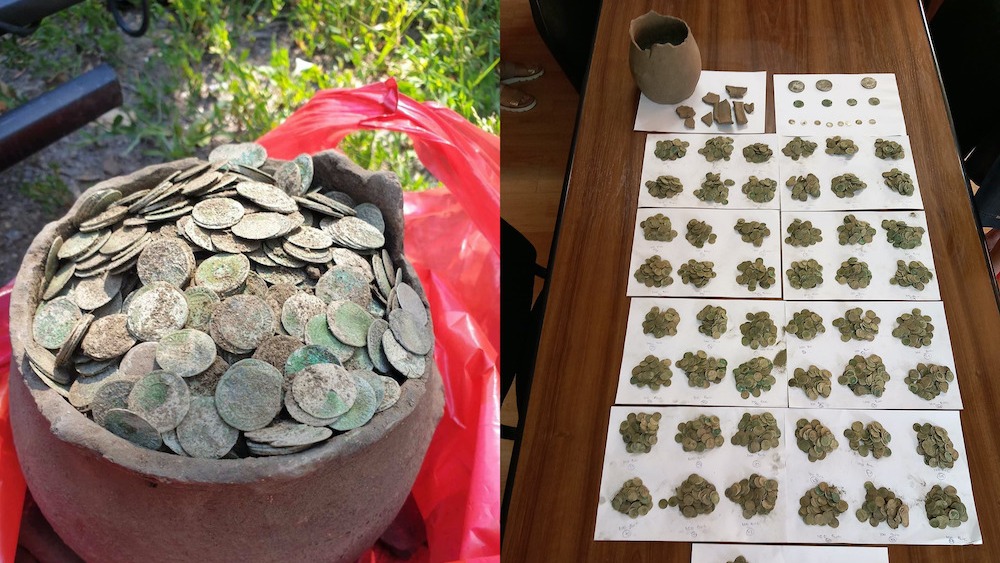
Metal detectorists have discovered a literal pot of buried treasure deep within a forest in western Romania.
In total, the group unearthed roughly 4,860 coins and three silver plates along with a ceramic pot holding the coins, according to a July 13 translated Facebook post announcing the find.
"Such a discovery brings a wonderful feeling," Raoul Vlad Suta, one of the metal detectorists who made the discovery, wrote in his post, adding that such a find "is the dream of every history and detection enthusiast."
Suta detailed how he and two companions found the coin hoard: "I received a short but stable signal [on the metal detector], I put the shovel to work," he wrote. "I noticed a small silver coin as if it was taken out of my pocket. A few more coins followed at a shallow depth; following the signals led us to what seemed to be a vessel's mouth."
Related: Kentucky man finds over 700 Civil War-era coins buried in his cornfield
The coins were issued between 1500 and 1550, during the reign of Vladislaus II (who lived from 1456 to 1516), the king of Bohemia, Hungary and Croatia. The hoard and its ceramic pot weigh nearly 10 pounds (4.5 kilograms) in total, according to the Facebook post.
Suta wrote that finding the coins gave the group "tears of joy."
The treasure hunters handed over their haul to Nojorid City Hall in western Romania, following a law that states that anyone who finds objects with potential value must notify their local city hall or museum within 72 hours of the discovery. Of the thousands of coins, only four couldn't be identified by Suta, his friends and town hall officials, he wrote in the post. Currently, there’s no additional information about why the coins were buried there.
The law states that the metal detectorists "may be entitled to 30% to 45% of the officially determined value of the treasure," according to Krónika Online, a Romanian website.







